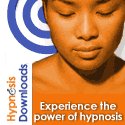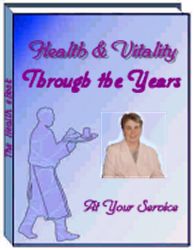Anxiety Attack Management
Anxiety attacks are terrifying but the good thing is episodes are in the main harmless. In most cases, attacks seldom last for more than 30 minutes, with height of intensity within the first 10 minutes. What make such attacks dodgy is if it becomes chronic and if it already affects the well-being of a person and already disrupts his customary way of life.
Learn more about Anxiety Attack Management
Several treatments are proven very valuable in stopping anxiety attacks. Let us look at some of the more common ones:
Breathing practice – is one of the most effective ways in controlling anxiety attacks. Accurate breathing helps slow down heartbeat and helps quiet down the tensed muscles as a result of the attack. Breathing also distracts the mind’s attention from the “trigger” and calms the self, thus, stopping the attack even sooner. Proper breathing techniques are easy to learn and master.
Self-hypnosis – is a great tool to alter your thought process as well as your body’s feedback to those fearful thoughts. During an anxiety attack, lay down on your back or in any calm position and try to process your thoughts. Identify the origin of such fearful thoughts. Know if it is real. If you concentrate enough in finding the origins of your thoughts, you will soon realize that they are really not a valid reason for excessive fear. It may sound simple, and it is. Psychiatrists now counsel self-hypnosis as a treatment for anxiety attacks and other anxiety disorders. (Hypnosis and cognitive-behavioral therapy can be used together by your therapist to stop symptoms of anxiety attacks.)
Meditation – has long been credited to lessen stress and anxiety as it promotes the discharge of negative energy from the body, relaxes tensed muscles, and calms the mind, which in turn, effectively reduces ridiculous fear and apprehension. Meditation may not be for all because of the time required to master the technique, however, with proper guidance of an professional or a little bit of patience and dedication, you can acquire its benefits.
Herbs – (such as chamomile, passion flower, lavender, and ginkgo biloba) are very effective long-term therapy for anxiety attacks. Since they are all-natural, they posses no side effects. They may not be as aggressive as prescription drugs but they work just as effective.
Prescription medicines – are a key help in stopping the symptoms of anxiety and episodes of anxiety attacks. Antidepressants are the most widespread anxiety treatment. They must be taken continuously, which may take as long as six weeks before noticing the effects. Beta-blockers are a type of drugs that prevent symptoms from recurring. SSRIs or Selective Serotonin Reuptake Inhibitors boost the level of serotonin in the brain which regulates and normalizes emotions.
Therapies – are a very essential anxiety treatment. These affect the psychological aspect of anxiety. CBT or the cognitive-behavioral therapy is used to change the way of thinking – converting harmful thoughts into affirmative ones. Techniques used in CBT include role-playing and relaxation technique. Exposure therapy exposes the person to the physical sensations of terror in a safe and controlled location. Through repeated exposure, patients profit greater self control and more confidence in facing fearful situation.
Prescription medicines and therapies, when combined and used at treatment, are very effective. Medical studies show that the response rate of patients is much higher if both methods are used compared to those that are treated using either technique.
To Find Out Which Method Is Best For You, Click Here Anxiety Attack Management
Grab practical suggestions to lose 10 pounds per week – this is your individual guide.



